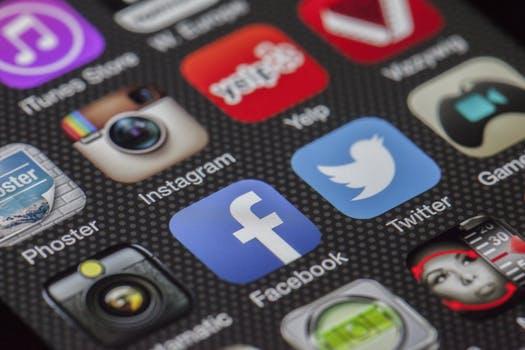 Lately when you have dinner with friends, do you spend the evening watching the dancing backs of their smart phones as they frenetically react to beeps and buzzes? Are you aware that you are seduced by social media? Is reality streaming across your digital screens from news headlines or tweets by politicians and reality-TV celebrities? Did you know that exposure to cell phones or WIFI can damage your body?
Lately when you have dinner with friends, do you spend the evening watching the dancing backs of their smart phones as they frenetically react to beeps and buzzes? Are you aware that you are seduced by social media? Is reality streaming across your digital screens from news headlines or tweets by politicians and reality-TV celebrities? Did you know that exposure to cell phones or WIFI can damage your body?
In my article "Is Technology Ruining Your Brain and Corrupting Your Mind?," I've shared details on the alarming impact technology is having on our well being. I'll admit I'm a techie and I enjoy electronic gadgets. But I'm painfully aware that consequences of technology is reaching a tipping point that calls for awareness and action. The ABCs of my article outline:
A. Technology is addictive. Digital devices are an integral part of our lifestyle and we're super dependent on them. They've replaced our memory as they store all our phone numbers, calendars, notes. We panic if--heaven help us--we leave our cell phone behind somewhere. We feel disconnected and lost. Think about it. Can you remember anyone's phone number? Can you imagine going an entire day without looking at your phone or email?
B. Sadly, we're hijacked into believing the disturbing news that flows across our screens. We read posts, tweets or hear headlines that become sound bites of reality. Who has time to investigate real truths? We're brainwashed. The result is fear which puts us in a robotic state in which we can easily be manipulated and controlled! We're becoming dehumanized. As I write this, another school shooting tragedy has occurred this week in Florida. Social media is connecting students but at the same time contributing to social isolation and exacerbating mental illness. We need to halt these harmful cycles now!
C. Science is proving that constant exposure to EMFs (electromagnetic fields) from cell phones, WIFI, power lines, etc. are causing health risks.
So what can we do about these insidious influences? As a Personal Development Coach and Wellness expert, I can tell you there is plenty you can do...if you want. You have choices, but one coach I know asserts that people don't want to change their habits or give up their devices. I'm not suggesting you do. I'm recommending intentional actions you can take to interrupt patterns and increase wariness to protect yourself and keep your brain, mind and body healthier.
Here are 11 solutions to minimize technology’s impact on brain and body health:
- Train in mindfulness
It's time to wake up and be more conscious of how you're using your computer or phone. I remember the days of wearing a watch which I constantly looked at even when I forgot to put it on. Get tuned in to unproductive habits and change them. Every time you get a digital alert, there's a slight increase in stress hormones released in your brain. When rapid fire, this effect takes a toll. It causes fatigue and sets you up to be more easily triggered to irritations, frustrations or anger. You lose coping skills. So if you begin to notice these unhealthy behaviors, you can get on a path to making more optimal choices. But first you have to pay attention on purpose! - Reduce or eliminate time wasters
This is a biggie. If you don't believe me, read Tim Ferriss's book The 4-Hour Work Week. It's a mega eye-opener! One particularly huge take-away is his suggestion of answering emails only twice a day (and eventually once a day) so you don't become a slave to your inbox. The key is to set up an autoresponse "that will train your boss, co-workers, suppliers, and clients to be more effective." It "forces people to reevaluate their reason for interrupting you and helps them decrease meaningless and time-consuming contact." If you're someone who obsessively checks email, such a move may seem drastic. To avoid withdrawal, you might consider starting with baby steps like checking just once every half hour and weaning yourself slowly.
- Offload social media mania
Many people are guilty of being on the Internet endless hours a day. Studies show a significant result is an increase in overall unhappiness. If your work requires social media screen time, you can use aggregate sites to manage delivery automatically. Sites like Hootsuite and Edgar offer the ability to create messages for all your social media outlets at once. You can create a month of postings in an hour and thus manage your time more effectively and minimize your exposure to all those annoying and manipulative posts and tweets, etc. Pick one day and track the amount of time you spend online so you'll conclusively know your hourly investment. If it's cumulatively more than 90 minutes, commit to scaling back. - Improve concentration and productivity by taking regular breaks
To optimize performance, neuroscientists suggest a mental time-out every 90 minutes. Take a minute or two to stretch, stand tall, sigh, breath deeply. It gives your body and brain a chance to refresh and reset. In fact, slow, deep breaths signal the nervous system to calm down and oxygenate cells to perform more optimally. I’ve created a “productivity pause” which is a 3-minute period to clear all thoughts using a guided experience. It’s free at 3MinutestoDestress.com. The more often you practice taking time to quiet your mind, the better your brain functions. By resting your mind, you actually increase your effectiveness and productivity. It seems counter-intuitive but it's actually a way to expand time! - Filter what you see and hear
Instead of reacting with judgment, fear or anger, stop to consider that perhaps the information is neither good nor bad. It just IS! And whatever it is will pass! Everything is in a state of change, like the ebb and flow of tides. Remain calm and centered. Fear is an enemy of rational and creative thinking. Steve Jobs once said "...Don't let the noise of others' opinions drown out your own inner voice. And most important, have the courage to follow your heart and intuition." Trust your own instincts and the more you tune in to your inner guidance system, the more you will connect to universal truths. - Create an intentional morning routine to maintain balance
More and more successful CEOs and entrepreneurs recognize the benefits of beginning the day with a brief period of deliberate quiet. By allowing time to self-reflect for 10 minutes before even getting out of bed, you establish more positive intentions for how you want to show up in your day. This activity builds brain health. You’re able to focus more strategically and use energy more wisely. Keep yourself from jumping online which immediately propels you off course with distractions. Be vigilant in sticking to your self-care routine. - Spend real in-person time with friends, family, associates, employees
Turn off all devices and look into their eyes as you communicate. Connect person to person. Recently, I listened to a presentation about a two-income family. Late at night the couple was in bed, each plugged into their personal tablets responding to work emails and texts. Suddenly the wife got a text: "Do you want to talk?" It seemed an innocuous question until she realized it was from her husband who was a touchable distance from her. So talk, touch, interact and be fully present when you're with people who are important in your life. - Take a "digication" (my new word!)
Deliberately unplug for at least an hour a day from news and electronics, Take a quiet walk in nature. Listen to relaxing music. Write in a journal. Make love. Use the time to clear your thoughts and de-stress. Reconnect to your sensory perceptions. If you can't access a pleasant experience for a break, visualize one. Activating your five senses is important to maintain connections within your brain's neural pathways. I work with clients with severe anxiety and by fully visualizing their "happy place" with all its colors, shapes, sounds, smells and feelings, they feel happier. They feel as if they are there in that joyful spot. Creating visualizations can release feel-good hormones that interrupt traumatic or painful thoughts and patterns. So if you can't physically get away, visualize yourself disconnected from all your buzzing and ringing. For certain, you'll feel better! - Don't let your ego rule
Society and culture conditions you to accept beliefs which are illusions. These permit the ego to react in unproductive ways. The ego judges, desires, likes, hates, feels anger, insecurities or lacks self worth. When you identify with reactive thoughts, you get stuck in your ego. When you enter a more integrated state of being--by breathing and witnessing--you connect to an integrated source which surrenders your self-image. The current barrage of media contributes to the prominence of your ego. To understand this more fully and learn to change it, read my article "Are you getting the most from your yoga practice?" which covers three mind-boggling ways to access deeper dimensions and improve your life. - Manage better sleep
Insomnia is rampant. People do not value or realize how essential quality sleep is for optimal functioning. Lack of sleep causes brain fog, anxiety, nervousness, headaches, body aches and pains, obesity and illness. Using digital devices in the evening can contribute to poor sleep as the bright blue screens fool the brain into daytime alertness. To counter this, reduce the use of all screens after sundown. If that’s impossible, wear blue-blocking amber-colored glasses. Or experiment by installing an app like https://justgetflux.com/ which automatically adjusts screen colors according to your time zone. As the sun sets, it will transform your screen into a more orange—less daylight-colored--glow. It'll allow you to wind down at night and ready for great sleep.
- Protect your eyes
Non-stop screen time causes eye strain (especially in youngsters). Take regular breaks from looking at your computer, tablet or phone and get an app that can help with reminders. I've installed a free app on my computer called "EyeLeo" which interrupts my desktop work every 10 minutes. A cute leopard pops up on my screen and reminds me to take 10 seconds to close my eyes tightly or look at a distant object or take a longer break. Coffee Break is a Mac app. Go to your app store and search eye strain reducer for options on your device.
Summary
As you rely more and more on technology, be accountable for your choices. Be forewarned of the dangers and make good decisions for yourself, your family and your children. Jeff Bell, Founder of My Health Optimzer, says: "...our lack of mindfulness about our use of technology is creating terrible problems for our whole society. It seems to me that we are seeing a decline in the ability of many in our communities to employ effective critical thinking. That is sad and may be the harbinger of serious problems. In fact, I think it contributes to much of what is so badly wrong with politics these days."
The take-away in all of this is that YOU can make a difference. Are you willing to start today? Which of the 11 options are you going to commit to doing immediately? Email me your selections or any other suggestions, ideas or requests for support on your journey. I'm sure I'll be "seeing" you online!
/PS_Heather_V1.gif)



